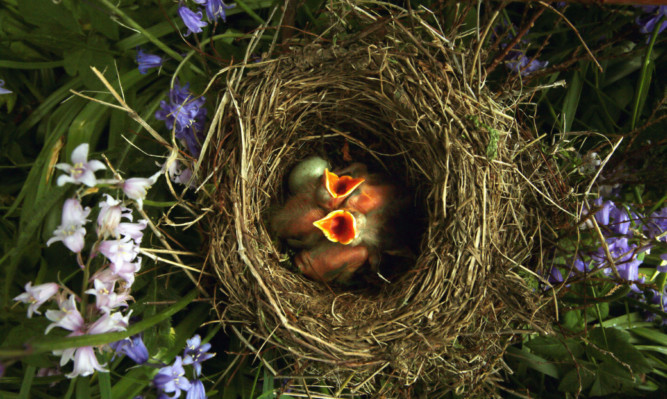A row has broken out between the RSPB and farmers’ representatives over the environmental components of the new CAP.
The trigger has been the Scottish Government’s clarification on Wednesday of some of the greening elements available to farmers who will have to set aside 5% of their land as Environmental Focus Area (EFA).
Strangely at this stage the war of words is not so much about the measures proposed, which have been broadly welcomed by NFU Scotland and RSPB, but about the perceived attitude of farmers to the whole concept of greening.
Commenting on the various clarifications and changes,Vicki Swales, head of land use policy at RSPB Scotland, said: “The decision that there must be a 2m buffer strip alongside water courses with no cultivation or pesticides and fertilisers used on them is welcome, as is the extension to the no-cutting period for hedges.
“These measures will help to improve water quality and benefit birds and other wildlife.
“Mr Lochhead’s commitment to a study to determine the environmental impacts of the greening measures is also right, given that the Scottish Government will spend approximately £125 million on greening each year for the next five years.
“These payments must deliver value for money, and we look to any future reviews to strengthen, not weaken, them.”
There was, however, a caution on this point from Bob Carruth, communications director with NFUS. “I would challenge the presumption that any future review would only look to strengthen the greening rules.
“Cabinet Secretary Richard Lochhead has already said this is the greenest CAP ever. There is to be an EU review of the measures in 2016, and I think it is appropriate to see the findings from that before we talk about more greening.”
Commenting on what she sees as the adverse reaction of the farming industry to greening, Vicki Swales added: “It is disappointing that the NFUS has reacted so negatively over the past week to the greening measures; this does little for the image of Scottish farming, and a disservice to the many farmers who recognise the need to adopt greener farming methods and who are already working hard to help wildlife on their farms.
“Let’s be clear; farmers have a wide range of options to meet the greening requirements and, in return for doing so, will receive a substantial payment from the taxpayer.
“Mr Lochhead has been more than fair in recognising farmers’ concerns whilst also trying to help the environment.”
A clearly exasperated Andrew Moir, chairman of NFUS’s combinable crops committee, responded: “RSPB keep trotting out figures which don’t really pertain to Scotland.
“They don’t seem to realise that the cropped area in Scotland has dropped 13% since the 1980s, and farmers are already doing a lot to manage field margins and hedges. There is no credit from RSPB for all of that. For example, corncrake numbers soared this year after a weather-related dip in 2012 and 2013.
“RSPB keep making things difficult for farmers when many are just struggling to survive, and it is its image as a responsible charity that is at risk.”
